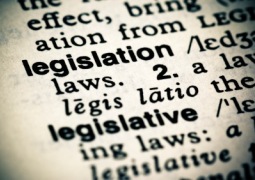
Fair use was once again the subject of discussion when the Select Committee on Trade and Industry, Economic Development, Small Business Development, Tourism, Employment and Labour resumed its public hearings into the Copyright Amendment Bill and the Performers Protection Bill yesterday.
Fair use is a concept that entitles the court to make a decision using its discretion when it comes to drawing up a list of copyright exemptions. Fair dealing is more predictable in that exemptions are listed in legislation and are amendable by the minister. The committee heard that if the bills create a free-for-all situation this would breach international treaties.
Lawyer and representative of the Composers, Authors and Publishers Association Mr Nick Matzukis said fair use is a vague and unpredictable notion. “It will create uncertainty and will result in judge-made law; different courts will arrive at different conclusions. It is Parliament who should be making the law, not the judiciary.”
“We (South Africa) have up to this point had a very clear, closed and predictable list of exceptions called fair dealing. They have been gone through numerous times. These exceptions are predictable and have served us well.” He characterised fair use as an American concept that will lead to worse consequences for originators of artistic work. “Fair use must pass what is known as the three-step test. We have an obligation to adhere to the three-step test.” He said the music industry does not accept the bills in their current form.
Mr Matzukis said big business seemed to have an agenda with the introduction of this legislation in South Africa. “In our view this international experiment is being conducted with our law in order for us to be waved in front of the world.”
A number of other stakeholders appeared before the committee and voice dissatisfaction with the bills. The committee is occupied with these pieces of legislation, which the President returned to Parliament for reconsideration.
Mr Steyn, from the Writers Guild of South Africa, said they have not taken a position as the bills are not all bad, nor all good. “There are a lot of positives addressed in CAB, but the implications are that it puts additional strains on industries that are already under severe stress. There would be financial strain on these industries. Ultimately the result would be that authors will not be in a position to negotiate for additional remuneration with international investors because of the 25-year restriction. This will stifle the industry.” He urged the committee to make use of experts in finalising the legislation.
Professor Owen Dean, from Stellenbosch University, said the bills had been poorly drafted and contained over 30 defects. “There are a lot of technical problems in the bills. They do not comply with the Berne Convention and the TRIPS agreement in several respects (international treaties to which South Africa is a signatory). The bills were half-baked.”
He said experts in copyright litigation need to redraft the bills in order to cure the deficiencies. He cautioned against passing the bills without correction and said they would be subject to court challenges.
Prof Sadulla Karjiker from Stellenbosch University had earlier shared similar sentiments about the inadequacies of the bills. He called on the committee not to make copyright legislation a scapegoat of government failures. “Copyright is the cheapest form of property ownership that somebody can own. It does not require government to tell you have a property; it does not require a licence. Why should a person write a text book when universities can just copy it for free?” he asked.
The Chairperson of the committee, Mr Kenny Mmoiemang, said the complexity of the subject was worth noting. “These are the blind spots that we need to take off so that there could be no question marks of the work of the committee.”
Sibongile Maputi
9 March 2023

